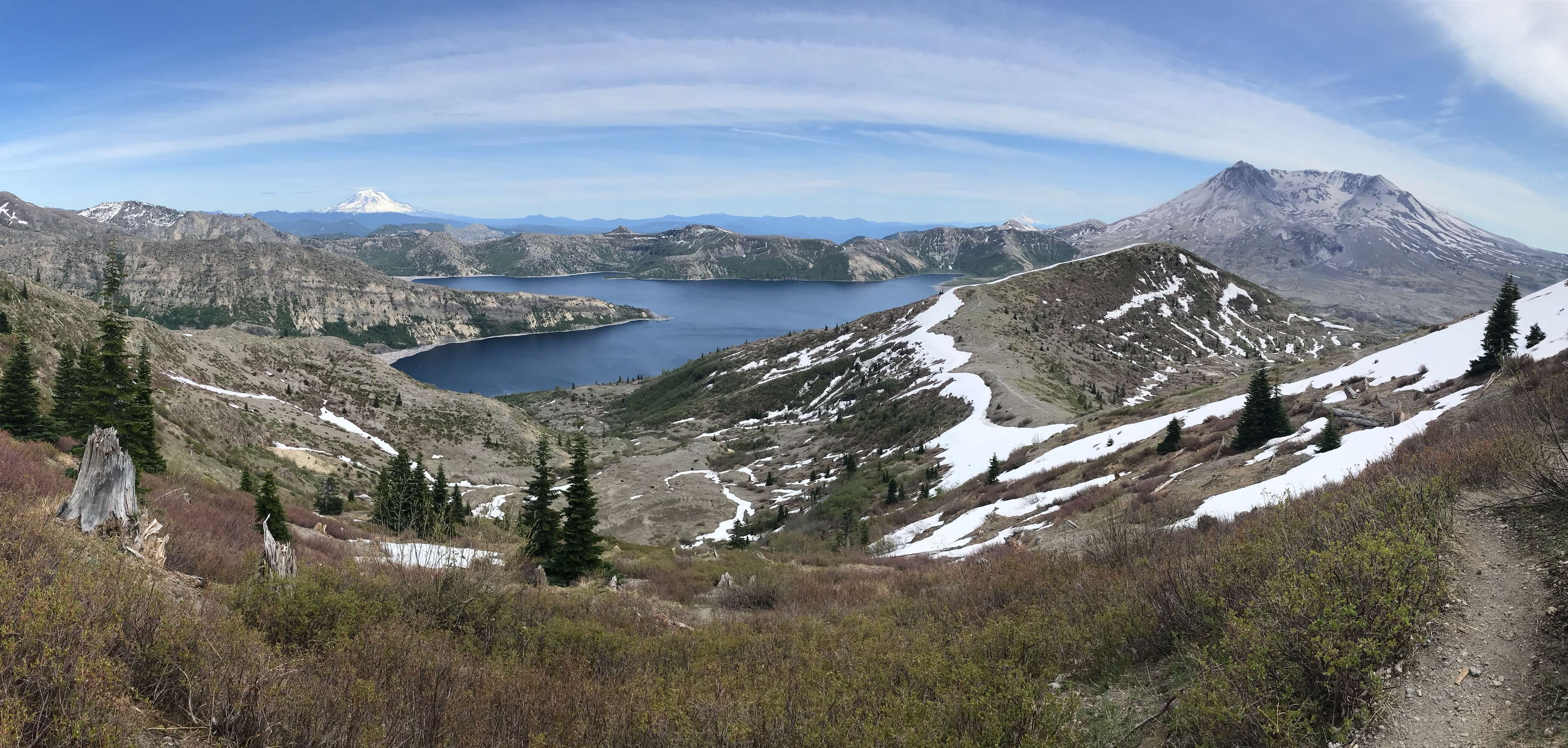While daydreaming about my next trip to
and around Mt St Helens, I’ve been reading this book. It’s a “collection
of poetry and essays” that emerged “from a July 2005 camping trip and
educational event at MSH […] that brought together many of the leading
writers and ecologists of the American West.”
The “novelists,
ecologists, poets, natural historians, philosophers, and geologists” who
participated in the 2005 foray included:
- Photographer Gary Braasch, (link)
- Author John Calderazzo, (link)
- Writer & calligrapher Christine Colasurdo, (link)
- Research ecologist Charlie Crisafulli, (link)
- Author John Daniel, (link)
- Research scientist Jerry Franklin, (link)
- Poet Charles Goodrich, (link)
- Professor of ecology Robin Wall Kimmerer, (link)
- Author Ursula K. Le Guin, (link)
- Poet Tim McNulty, (link)
- Author Kathleen Dean Moore, (link)
- Forestry researcher Nalini Nadkarni, (link)
- Naturalist Robert Michael Pyle, (link)
- Professor of English Scott Russell Sanders, (link)
- Aquatic scientist Jim Sedell, (link)
- Author Gary Snyder, (link)
- Author Kim Stafford, (link)
- Lover of volcanoes and writer Fred Swanson, (link)
- Researcher and ecology professor Tony Vogt, (link)
- Writer, artist, and naturalist Ann Zwinger, (link)
- Naturalist and writer Susan Zwinger, (link)
Of all the essays, the chapter by James Sedell resonated with how I'm feeling personally, at this point in time:
"In an article on MacArthur's work, Stephen Fretwell wrote, 'In all research reporting, over-attention to detail can obscure the spirit of curiosity and wonder upon which good, basic research depends. MacArthur's work ... makes inexcusable the report that is deadly dull, but otherwise correct. Better to spend (as MacArthur did) one's time and energy being interesting; if something has to be sacrificed, let it be exactness. Clearly, one can contribute as much with such an approach.' I paraphrased this as a guiding mantra for scientific research: What is the storyline?" Pg. 86
“Going to the volcano with those writers and scientists and other volcano friends helped me reconnect with my own sense of purpose—to share the passion I feel for science […]! I thank Mount St. Helens for stepping into my life at key junctures to bring this purpose and passion into sharp focus.” Pg. 89
While some of the essays are written by scientists and go into some detail about the species of flora and fauna that inhibited the "blast zone" before and after the 1980 eruptions, is the essays and poems about how the writers felt about the area, describing a "loss" and "destruction", many are quick to point out that this "negative" terminology is not accurate in fact and sentiment.
The writers challenge with their own assumptions & first impressions and are learning to see the "event" and changes after as allegory for recovery, resiliency, and finding purpose when it's not obvious, informing how we can better react to big changes.
“A man turning sixty may lose perspective on time, seeing all change as loss, counting his aches as if they were worry beads, anticipating the chill wind of his last hour instead of breathing in the present moment. And so, to regain his grip on time, to console himself for loss, and to remind himself of the great story in which he is taking part, he may consult with rocks.” - from “Two Stones” by Scott Russell Sanders, Pg. 92
---
IG Post about the book (original text for this post): https://www.instagram.com/p/CY7JT16PzJC/

